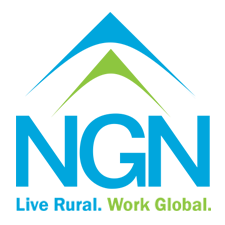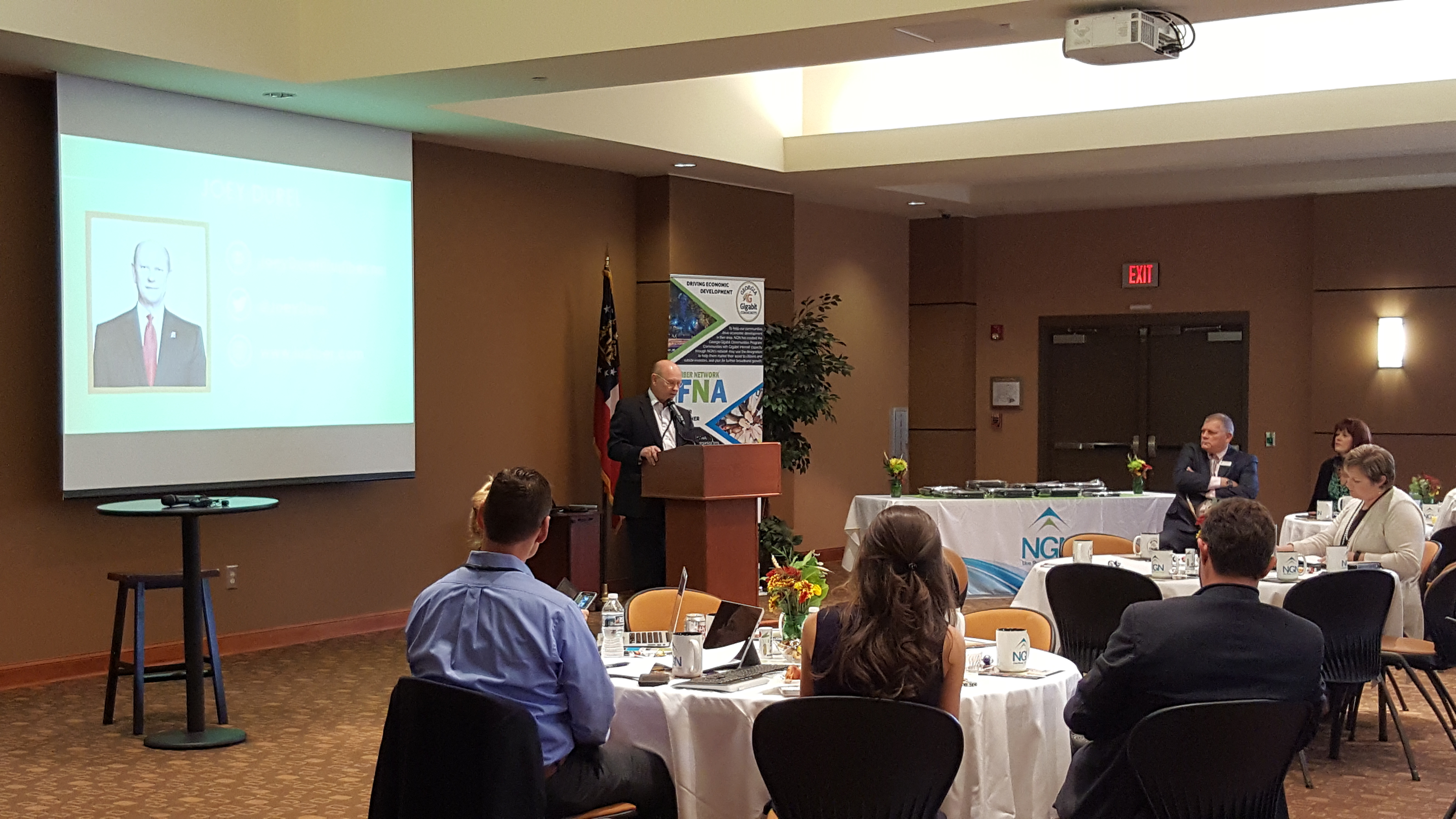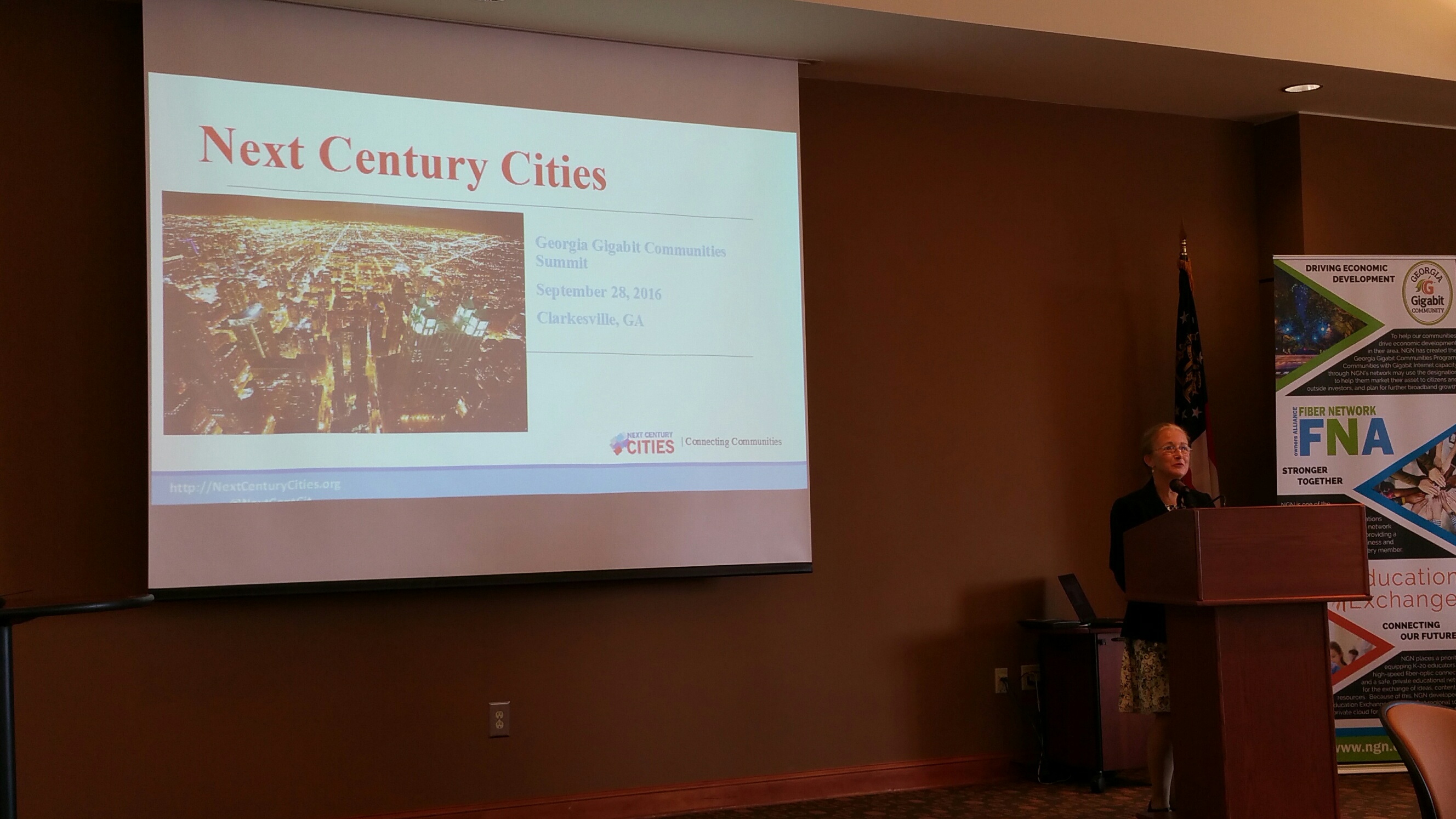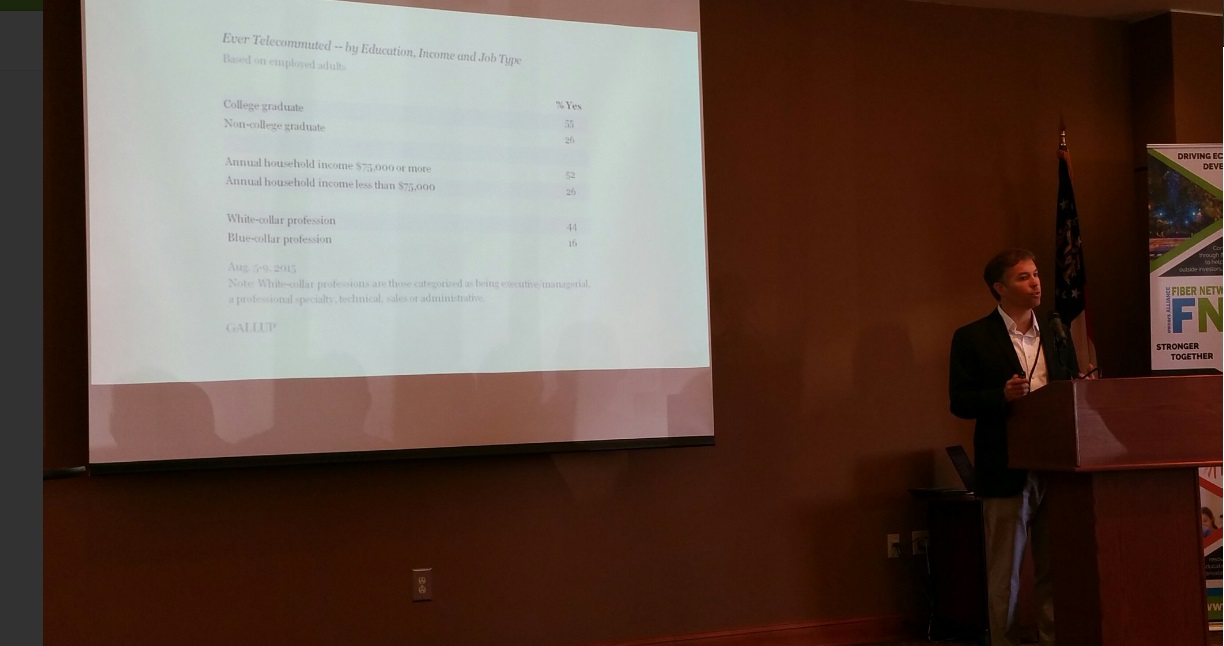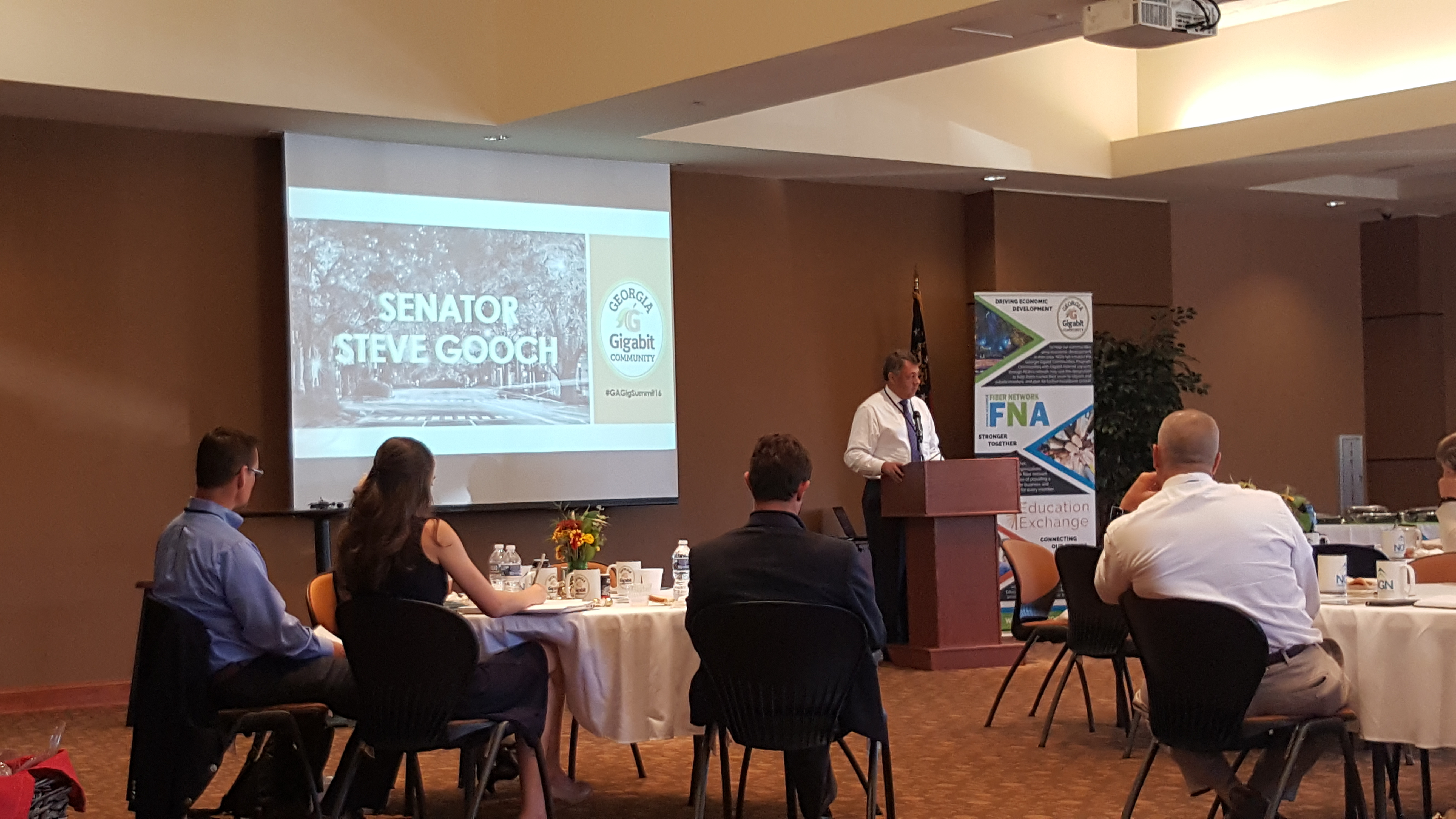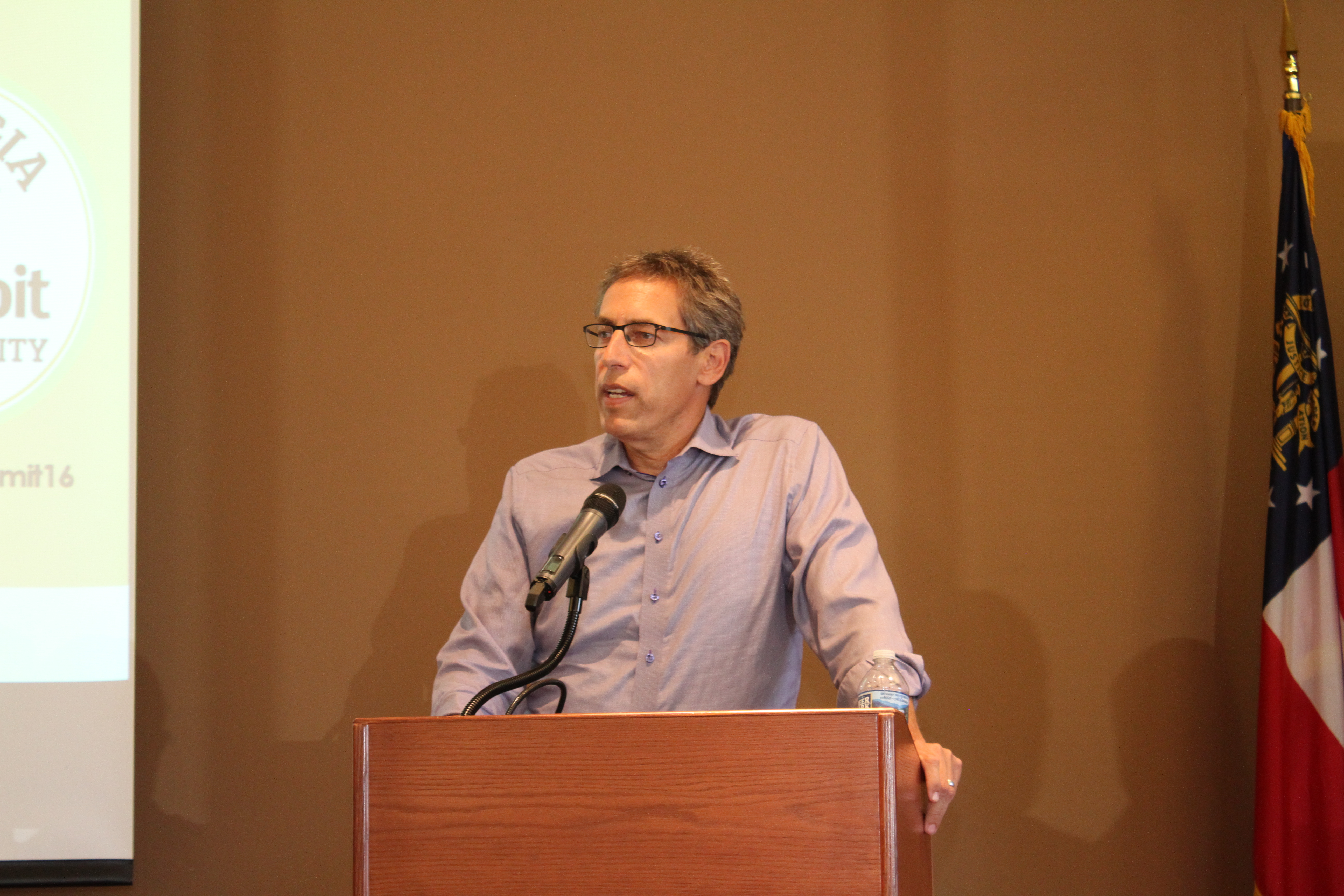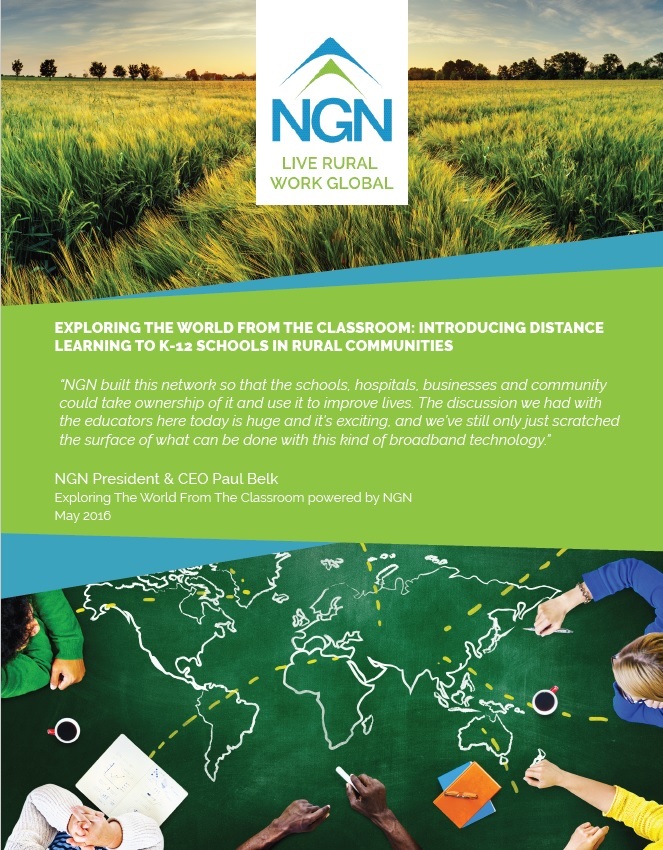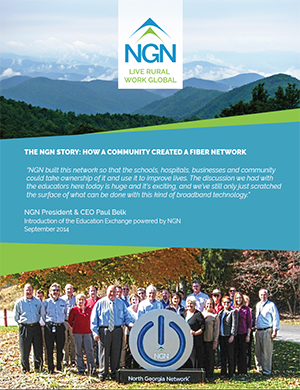NGN recently hosted over 70 local government officials and community leaders at its inaugural Georgia Gigabit Communities Summit in Clarkesville, Georgia. An impressive collection of national broadband experts and advocates made for a day of informative discussions on how gigabit infrastructure can enhance local economies and the overall quality of life for residents of rural communities.
Below please find the highlights from our distinguished panel of speakers:
Joey Durel, Former Mayor of LaFayette, Louisiana
Joey Durel never wanted his children to say, “Dad, we can’t stay in LaFayette because we can’t support a family here.” So as Mayor, he strove to make sure they had every opportunity available to them right at home. This included the high-speed broadband businesses and employees need to thrive and compete on a global level.
As a result, under Durel’s leadership LaFayette became the first municipal fiber-to-the-home (FTTH) system to serve an entire community in Louisiana. At the Summit, he shared the challenges that he and his team faced to bring gigabit infrastructure to the city and explained the immediate and long term benefits to his region, noting that businesses often told him they came to Louisiana for the tax credits but located their business in LaFayette because of the fiber.
Tim Moyer, Project Manager, National Telecommunications and Information Administration (NTIA)
Tim Moyer explained how broadband directly relates to job growth in rural America and shared impressive facts on the economic implications of broadband access. For example, in Organization for Economic Cooperation and Development (OECD) countries, gaining 4 Mbps of broadband increased household income by $2,100 per year (approximately 4%). From a business perspective, companies that adopted broadband-based processes experienced an improvement of 5% in labor productivity and 10% in the services sector.
Moyer also gave an overview of the NTIA’s current broadband programs: BroadbandUSA, BTOP and SBI, which are working to bridge the broadband gap across the country. He outlined how municipalities looking for assistance can obtain it through these programs and gave a quick tour of the resources available on the NTIA’s website.
Click here to view Tim Moyer’s presentation slides from the Georgia Gigabit Communities Summit.
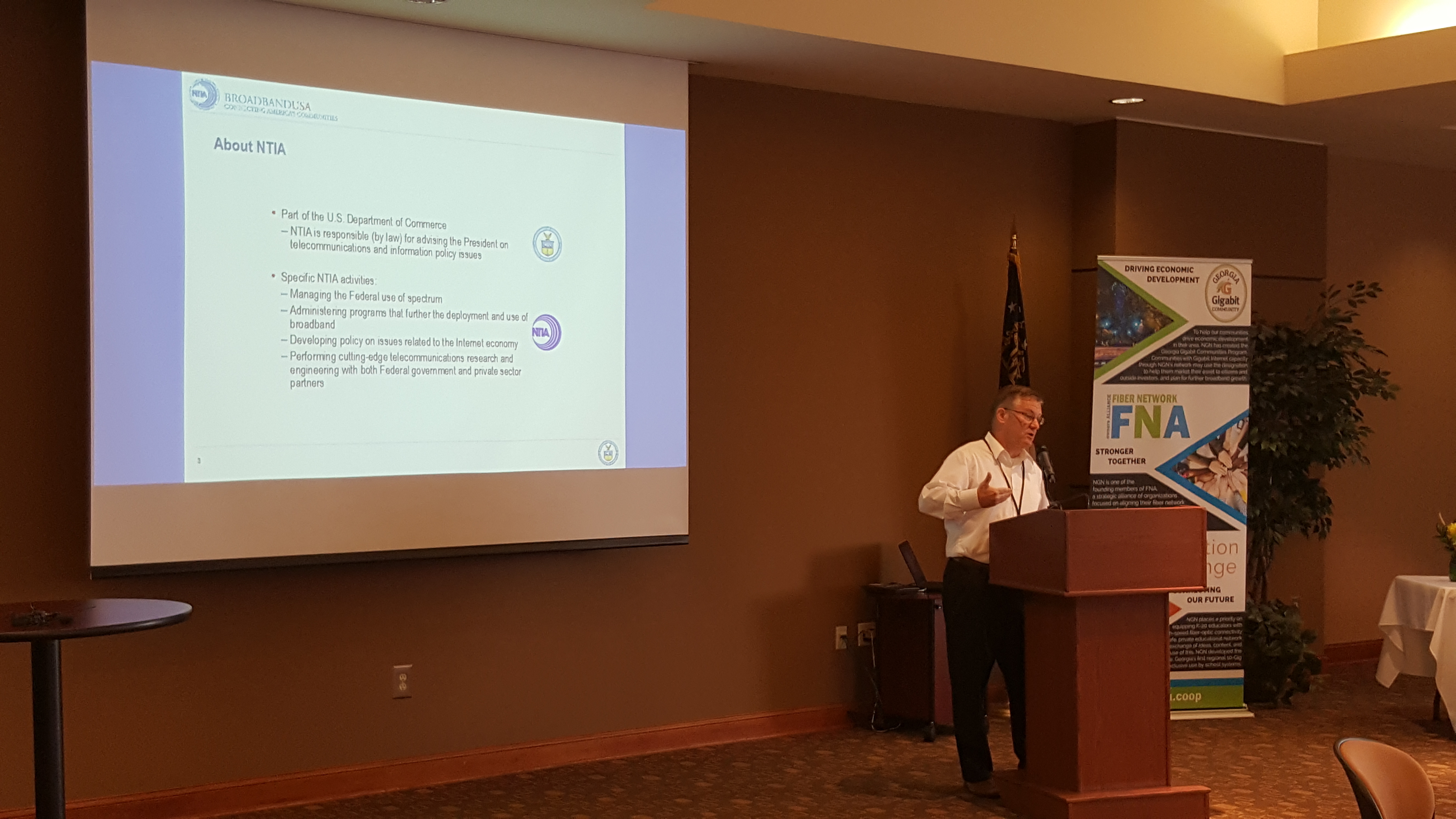
Tim Moyer discusses the broadband challenges currently facing rural communities across the country and the government programs that are working to bridge the Internet gap across the U.S.
Deb Socia, Executive Director, Next Century Cities
Deb Socia introduced attendees to Next Century Cities’ nationwide network of mayors and city leaders committed to ensuring fast, reliable and affordable Internet access for all. Next Century Cities provides its nationwide member base of 149 communities with relevant media contacts, regional events, keynote speaking engagements, panel discussions and awards programs. All initiatives are geared towards driving the concept that gigabit infrastructure isn’t a luxury, but a necessity in today’s world.
During her presentation, Socia shared five unique models that her organization’s members have used to bring gigabit infrastructure to their communities: collaboration efforts with existing providers, municipal built networks, taking an incremental approach, public-private partnerships, and open access networks.
Click here to view Deb Socia’s presentation slides from the Georgia Gigabit Communities Summit.
Bailey White, Co-Creator of CrowdFiber and Senior Partner, Civitium
Baily White described how CrowdFiber, a web-based crowdfunding application for broadband, has helped many coops provide broadband access to their subscribers, citing several recently completed projects. White explained that his company has had great success in getting customers to encourage neighbors and friends to request high-speed broadband services from their local providers, EMCs, and municipalities.
Georgia State Senator Steve Gooch, Co-Chair of the Senate Broadband Study Committee
Georgia State Senator Steve Gooch gave his presentation on the current broadband needs of rural Georgia communities. He showed his support for bringing gigabit services to rural Georgia, citing several economic impact findings that the Broadband Study Committee has gathered thus far.
Senator Gooch asked that attendees go online to https://broadband.georgia.gov and take the committee’s Georgia Rural Broadband Survey, and also share it with their communities. The results of the survey will guide the committee as they craft a solution and make their recommendations to the State.
Daniel Frizzell, Director of Broadband Services, Blue Ridge Mountain Electric Membership Corporation (BRMEMC)
Daniel Frizzell explained the economics behind EMCs and how they can partner with regional networks and local service providers to help rural markets in Georgia. Frizzell encouraged other coops to investigate what role they can play in providing broadband services to under- and unserved rural citizens.
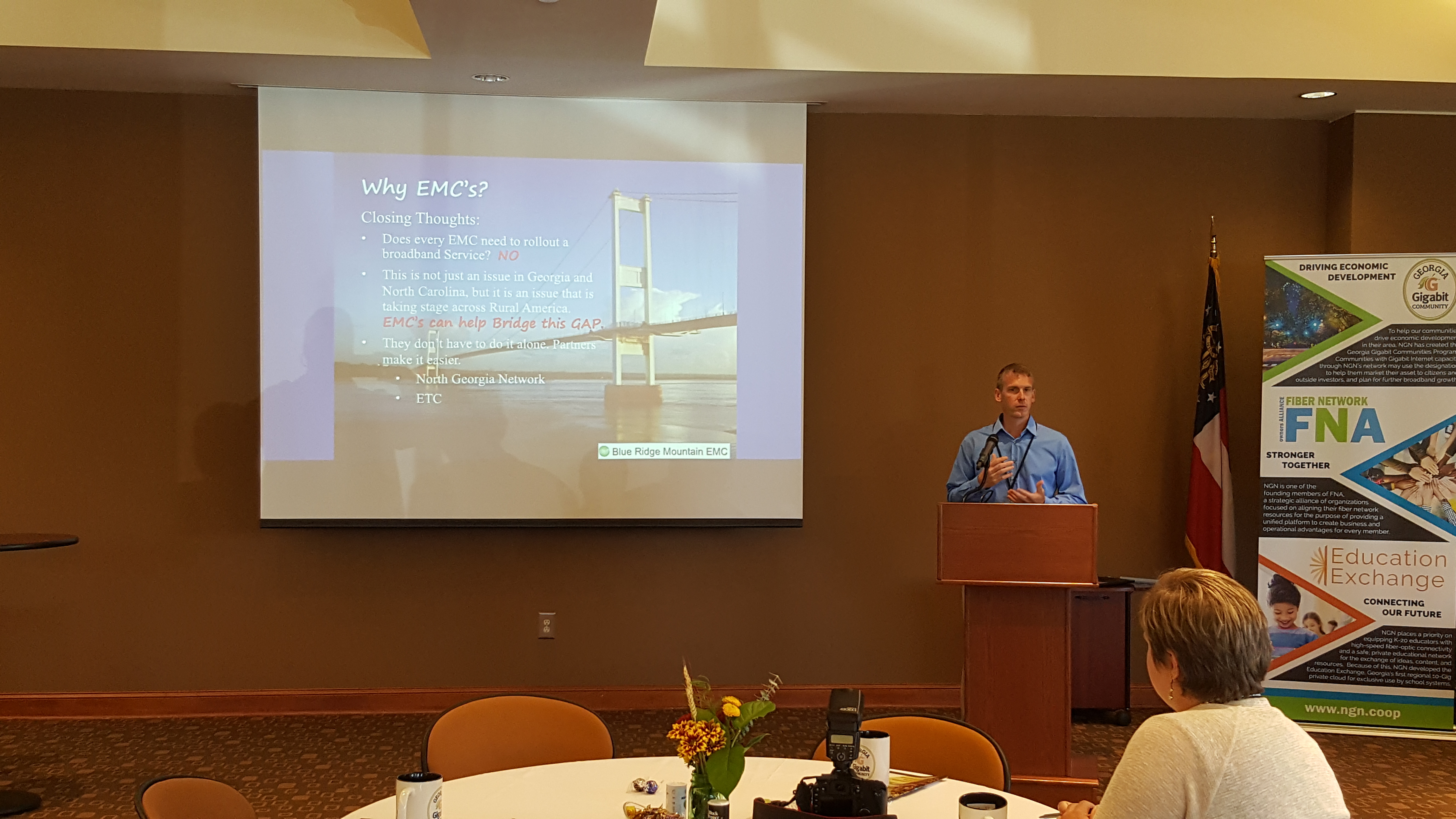
Daniel Frizzell explains the economics behind EMCs and how they can play a part in bridging the digital divide.
Paul Belk, President and CEO, NGN
Paul Belk shared some of the key milestones that NGN has reached over the years and gave an update on the recent growth that the network has experienced due to the ever-increasing demand for rural broadband connectivity. Belk explained his vision for the future of broadband in the State of Georgia, encouraging all attendees to not only advocate for broadband services in their communities but also to take action themselves. No one can solve the rural broadband problem alone. It has to be a community effort.
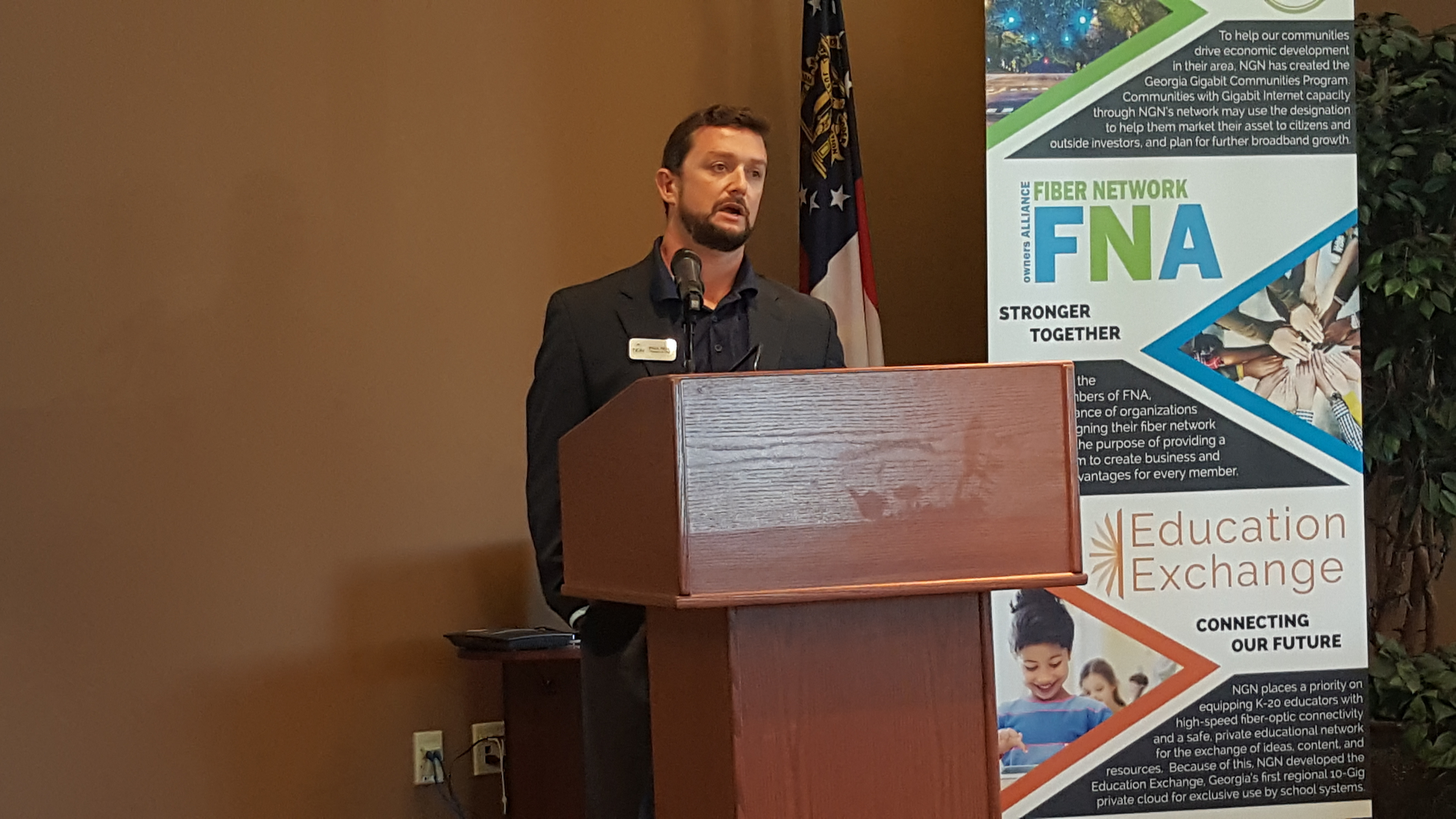
NGN’s Paul Belk stresses the need for communities to get involved and work with their local network resources.
Jonathan Chambers, Partner, Conexon
Jonathan Chambers wrapped up the afternoon’s discussion with some thought provoking comments on the state of rural broadband in America. He noted that the current model used by the government and many in the industry is outdated. It proposes that building fiber to the home is impossible in rural communities without government subsidies. Conexon’s model proves differently and has recently helped many rural communities complete FTTH projects successfully.
Chambers noted that fiber is without a doubt a necessity in our day and time, and that those who promote technical agnosticism are usually the ones with a lesser technology. He closed by saying that it is possible, as a nation, to build fiber to the home without government funding but rather with time, effort, and hard work.
Thank you to all that joined us for the summit. We look forward to continuing this important conversation and partnering with local communities to help area residents and businesses maximize the opportunities presented by gigabit connectivity.
For more information on Georgia Gigabit Communities, please reach out to info@ngn.coop.
